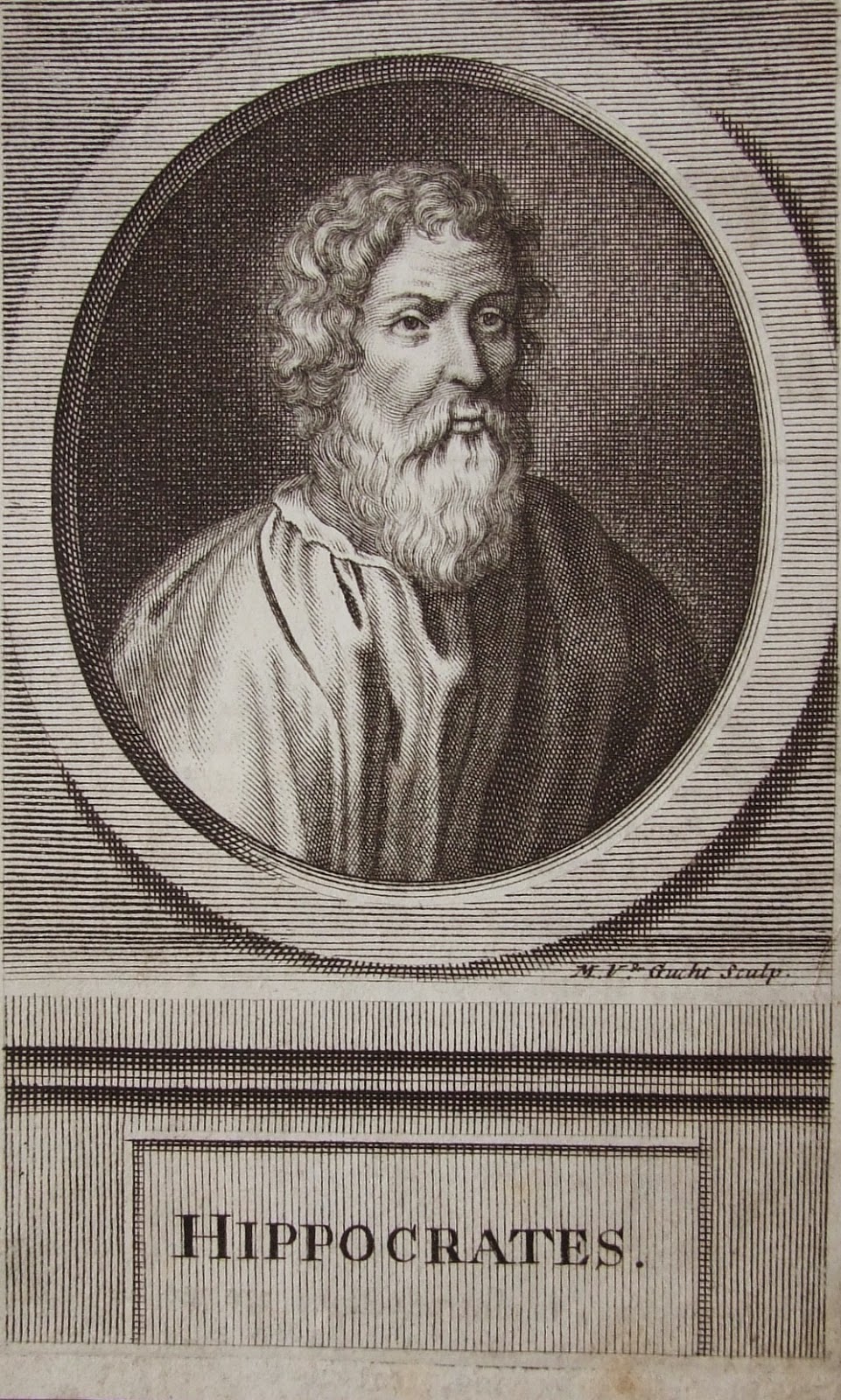Hippocrates, the Father of Medicine
 |
| Engraving of Hippocrates (VM/1/2/H/30) |
Modern medicine as we know it may not have been here
today if it were not for the actions of one man, Hippocrates. He was one of the
most influential Grecian men of that era; his influence can be seen by the fact
that even today doctors take the “Hippocratic Oath” before entering the
profession. In this blog post we will take a short look at this man and his
beliefs.
Hippocrates was said to be born in the year 460 BC on the
island of Cos. Little to no information can be found on his early life. Soranus
of Ephesus, a student of his, wrote that his father was a physician named
Heraclites, whom Hippocrates studied with He spent the rest of his
life practising and teaching his trade.
Hippocrates was the first person to theorise that
diseases were not caused by angry gods but instead by outside factors on earth.
He believed that humans were governed by “humours”, which meant humans were
governed by the fluids in their body, which in turn were represented by the
elements as seen on the graph
below.
Humor
|
Season
|
Organ
|
Element
|
Qualities
|
Ancient
name
|
Temperament
|
Temperament
Characteristics
|
Blood
|
Spring
|
Heart
|
Air
|
Warm
and moist
|
sanguis
|
Sanguine
|
Courageous,
hopeful, playful, carefree
|
Yellow
Bile
|
Summer
|
Liver
|
Fire
|
Warm
and dry
|
khole
|
Choleric
|
Ambitious,
leader-like, restless, easily angered
|
Black
Bile
|
Autumn
|
Spleen
|
Earth
|
Cold
and dry
|
Melas
khole
|
Melancholic
|
Despondent,
quiet, analytical, serious
|
Phlegm
|
Winter
|
Brain
|
Water
|
Cold
and moist
|
Phlegma
|
Phlegmatic
|
Calm,
thoughtful, patient, peaceful
|
Hippocrates’ philosophy of medicine was one of
professionalism. A doctor must be calm and caring but also be serious and well
kempt. Hippocrates was a great
believer in using the “healing power of nature” and letting the patient rest in
a clean environment.
 |
| Title page of Hippocrates upon Air, Water and Situation (Dun's Library) |
The most famous part of Hippocrates’ work was the
Hippocratic Oath. The oath requires the doctor to swear to the Gods to be
professional, keep the patient’s problem confidential and not to intentionally
harm the patient physically or mentally. Interestingly the phrase “first do no
harm” is not from the oath, but instead was probably coined in the 19th
century by a surgeon named Thomas Inman. The oath has been modified
many, many times to reflect the changing attitudes of people. However the
spirit of the oath always lives on.
I hope you have enjoyed this little look at the father of
the medical profession as we know it. There are quite a few items relating to him in our library and archive, so feel free to come in and take a look. Our library collections
include “Hippocrates upon air, water, and situation; upon epidemical diseases;
and upon prognosticks, in acute cases especially”. There are also a number of
engravings of Hippocrates in our archival collections.